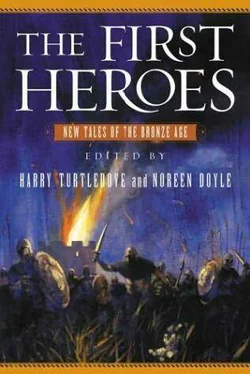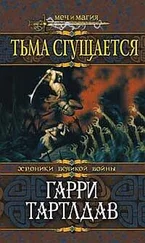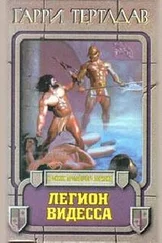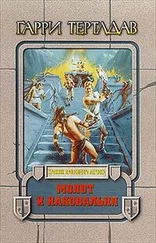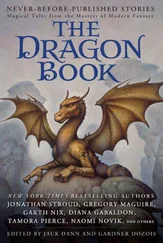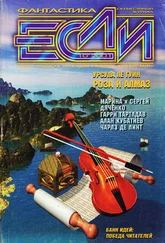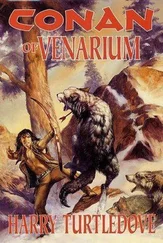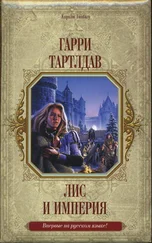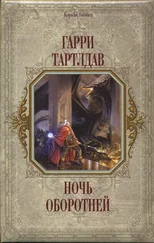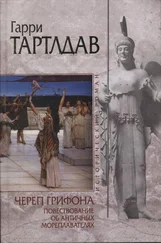Гарри Тертлдав - The First Heroes
Здесь есть возможность читать онлайн «Гарри Тертлдав - The First Heroes» весь текст электронной книги совершенно бесплатно (целиком полную версию без сокращений). В некоторых случаях можно слушать аудио, скачать через торрент в формате fb2 и присутствует краткое содержание. Жанр: Фантастика и фэнтези, на английском языке. Описание произведения, (предисловие) а так же отзывы посетителей доступны на портале библиотеки ЛибКат.
- Название:The First Heroes
- Автор:
- Жанр:
- Год:неизвестен
- ISBN:нет данных
- Рейтинг книги:3 / 5. Голосов: 1
-
Избранное:Добавить в избранное
- Отзывы:
-
Ваша оценка:
- 60
- 1
- 2
- 3
- 4
- 5
The First Heroes: краткое содержание, описание и аннотация
Предлагаем к чтению аннотацию, описание, краткое содержание или предисловие (зависит от того, что написал сам автор книги «The First Heroes»). Если вы не нашли необходимую информацию о книге — напишите в комментариях, мы постараемся отыскать её.
The First Heroes — читать онлайн бесплатно полную книгу (весь текст) целиком
Ниже представлен текст книги, разбитый по страницам. Система сохранения места последней прочитанной страницы, позволяет с удобством читать онлайн бесплатно книгу «The First Heroes», без необходимости каждый раз заново искать на чём Вы остановились. Поставьте закладку, и сможете в любой момент перейти на страницу, на которой закончили чтение.
Интервал:
Закладка:
"Now what's this?" Mother said. With a flip of her wrist she brought the spindle back to her lap and laid it on the mat of wool. "Metabus ?" The man frowned. I could tell he didn't like it that my mother was the first to speak. "Where is your husband? I need to talk with him."
"Very well." Mother glanced at Fawa.
The slave woman stood down from her stool and laid the wool and spindle upon it, then hurried into the house. My mother and Metabus waited, saying nothing, she with her hands folded and Metabus scowling and pacing. Camilla looked bored, and I saw that she had moved closer to where I sat.
I stole another look at her short tunic. "Why are you dressed like that?"
Mother started to hush me, but Camilla only smiled. "I'm dressed like this because I belong to the goddess Diana. She hunts in the forest, and so do I."
I had never heard of anyone belonging to a god before, and it fascinated me. "You belong to her? Like a slave?"
"Yes. My father gave me to her." The thought didn't seem to bother Camilla very much. "But because I'm her slave, I'm really free. I never have to get married and worry about babies and things like that."
"That's splendid!" I said. But I was still curious. "Were you in the marketplace? Did she barter for you?"
Metabus had kept an ear open despite his scowling, and my question made him laugh, showing strong teeth like an animal's in the black of his beard. "The gods don't stoop to haggling over eggs and lettuces, girl. I was pursued by enemies, and my infant Camilla with me—she could have fit into a market basket, that much is true enough—when we came hard up against a river too fast and deep for a man to wade across. There was nothing left to do but ask the gods for help, and since we were in Diana's forest, it was she I asked, saying that if she would only keep us both safe she could have my daughter for a servant ever after."
Camilla took up the tale; her eyes were dancing, and I could tell that she'd heard the story many times before. "He unbelted his tunic," she said, "and used the belt to tie me to his spear, and threw the spear across the river. That was no easy cast, with the spear so weighted and out of balance, but the goddess guided and strengthened his arm. The spearhead lodged in the dirt of the riverbank and I hung there, howling, until he swam across to take me down. Since then I honor his promise, and serve Diana out of gratitude."
Nothing that exciting had ever happened in the compound of the Woodpecker clan. I thought for a moment and asked, "When I get big can I worship Diana?"
Metabus was laughing again, even though my mother's face had knotted in disapproval. I think it amused him that his daughter's story had put Amata out of pleasure with me. "Maybe you can," he said to me. "I wouldn't know. Or maybe you'll serve some other god, her twin brother, maybe."
My mother had heard enough. She slid down from her stool and grabbed my arm so tightly that it hurt and gave me a shake. "Winni, go into the house! Tell Fawa to bring some cups and a pitcher of water to offer our guests."
I trotted off, rubbing my arm, but at the doorway I looked back. My mother was shaking her finger in Metabus's face and talking fast and angrily. Metabus, however, was still laughing. That he would dare laugh at the wife of a headman just as if she were a foolish child stunned me— but Camilla's little smile as she watched them shocked me even more. When I saw it, I truly understood that yes, as she'd told me, she was free.
I want to be free, too. The thought came to me like a traitor's whisper, and I ran into the house.
I don't remember what Metabus came to ask my father about that day, except that it had to do with one of the feuds in which Metabus, with his violent nature, often found himself embroiled. What I do remember clearly, even across the gap of years, is how beautiful and strong all of my family looked when they stood together in the sunlight by the olive tree. My father had already gone heavily gray—my mother, much his junior, was his second wife—but still he stood tall and straight, and to me he was the handsomest man in Latium. Even my brothers, young and vigorous as they were, yielded pride of place to him in my mind. As for my mother, I had always thought that she was the most beautiful woman in the world, young and slender, always laughing, her pale brown hair pulled back carelessly with a pair of bone combs. My father's thinning hair was the color of silver, and his face was marked by thoughtful lines, but I remember him as happy then, when my brothers were still alive.
Yet before three winters had come and gone, everything changed. My younger brother caught a fever and died. My elder brother, my father's heir, drowned as he swam in the river. Although my father prayed, and my mother worked charms, and both made sacrifice after sacrifice to the gods, she never conceived again. I felt each winter passing without a new heir as a chain, binding me around. I was afraid that I'd never be allowed to serve a god or goddess if I were the only living child of Latinus.
The second of the omens that were to rule my life came here, in Cumae cave. I was on the threshold between child and woman when my father and mother came to ask the god voice what should be done if my mother could not conceive another heir. Almost, they left me behind— but my father said, "She is Latium, if there is no one else," and so I traveled with them.
I remember the heat of the summer day and the flat pale blue of the sky. The sweat ran down the back of my neck and in between my breasts, and the bright sun blinded me and made my head ache. The cool air inside the cave felt pleasant against my skin and the darkness soothed my burning eyes, and I thought how kind it was of the god to shelter his voice from the full strength of his power in the heat of the day.
We waited together in a circle of torchlight, my mother and father, the god's voice, and I, and Latinus spoke. "Great Dian," he said, "no man lives forever, and I grow old. Once I had two sons, either one well-suited to take my place as chief of the Woodpecker clan, but the Fates saw fit to take them before me, and only a daughter remains. I ask now for some omen or word of guidance. Show me, great Dian, what I should do—for the sake of my family, and for the people of Latium who look to us for help and safety."
My father finished speaking, and there was silence. Even the air inside the cave, which had flowed about us like the cool breath of the mountain, drying my sweat and making the flame of the torch bend and waver, ceased moving and grew still. The pause lengthened and tightened like wool turning into thread on a spindle, and still nobody moved or spoke, only waited on the coming of the god.
He came in a great outrushing of air from all the hundred mouths of the grotto, a roaring blast that whipped my hair loose from its bindings and extinguished the torch altogether. For an instant we stood in total darkness. Then the fire came, and I was enveloped in blue-white flames that licked and played around my body but did not burn. I held up my arms, and the blue fire ran down them like water, and Latinus and Am-ata gazed at me wide-eyed in its light.
It seemed forever that I stood there wrapped in the god's fire, but it can only have been for the space of a few heartbeats. Darkness came again, and the wind stopped, and I fell half-fainting to the cavern floor.
"The god has spoken," the seer told my father. "You have your answer."
It settled nothing, of course. The gods give us omens, but men—and women—interpret them. My mother and father argued with each other all the rest of that summer and into the winter of the year about what the god had intended. On one thing only were they agreed: when I dared to voice my own belief, or perhaps hope, that Dian Farseer had marked me for his servant, my words found no hearing with either Latinus or Amata.
Читать дальшеИнтервал:
Закладка:
Похожие книги на «The First Heroes»
Представляем Вашему вниманию похожие книги на «The First Heroes» списком для выбора. Мы отобрали схожую по названию и смыслу литературу в надежде предоставить читателям больше вариантов отыскать новые, интересные, ещё непрочитанные произведения.
Обсуждение, отзывы о книге «The First Heroes» и просто собственные мнения читателей. Оставьте ваши комментарии, напишите, что Вы думаете о произведении, его смысле или главных героях. Укажите что конкретно понравилось, а что нет, и почему Вы так считаете.
